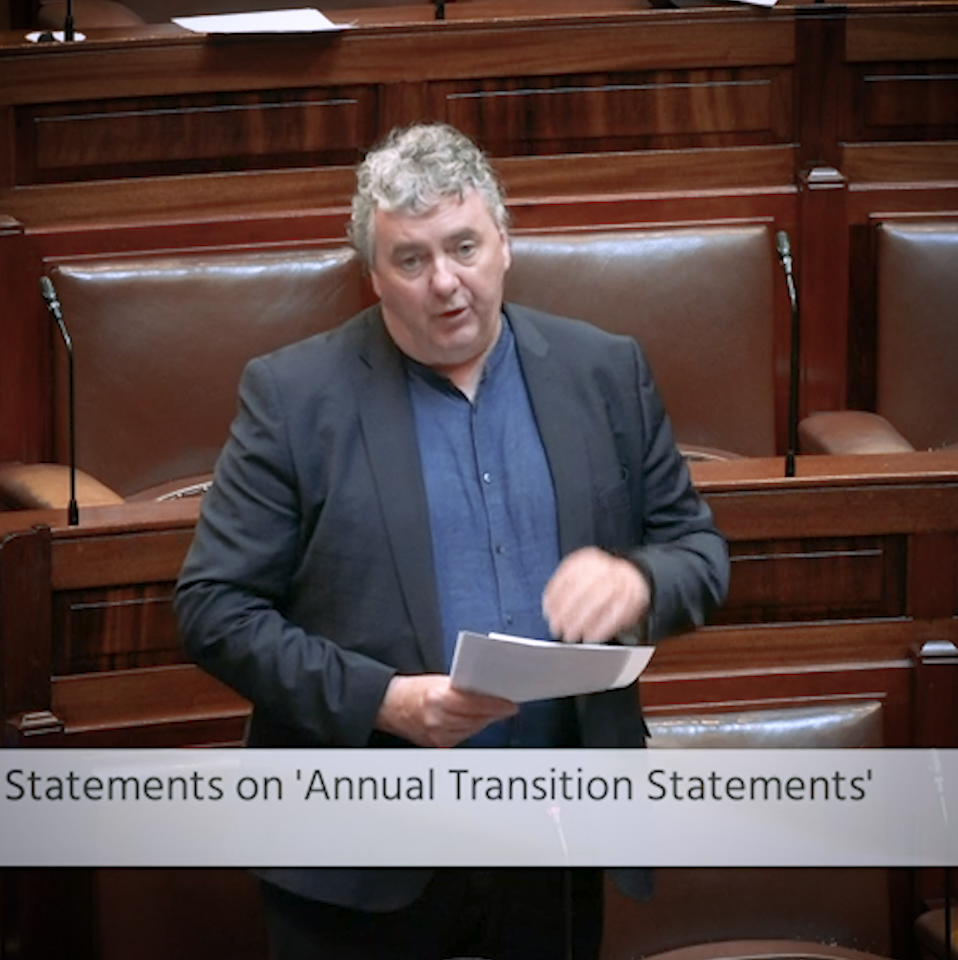- Pringle: We need a policy that recognises the importance of inshore fishing
- Pringle: Disabled people and carers face crisis of State neglect
- Pringle: Failed FF/FG housing policies forcing people to put their lives on hold
- Pringle welcomes Donegal council motion on Occupied Territories Bill: ‘We cannot stand by in the face of genocide’
Pringle: Government climate policies do not reflect the level of climate emergency
- Updated: 16th June 2022

Independent TD for Donegal, Thomas Pringle, said government policies on climate action do not reflect the climate emergency we face.
Addressing the Dáil on Wednesday, Deputy Pringle also said the voices of young people must be part of the debate, saying, “They are the ones who will be most affected by it and sadly they are the ones who are going to be left with solving it as well.”
Deputy Pringle’s bill calling for a referendum on lowering the voting age to 16 (Thirty-ninth Amendment of the Constitution (Right to Vote at 16) Bill 2021) will move to second stage in the Dáil next Thursday, June 23rd.
The deputy spoke on Wednesday on annual transition statements, which he called “an essential source of evidence of the government’s record on tackling climate change.”
However, he said, “The fact that it has come 18 months too late is not acceptable, especially due to the ever-worsening climate crisis.”
The deputy said: “The truth is however, and this report shows this, that we are failing at moving forward in terms of climate change. We are at a defining moment, with rising sea levels, increasing temperatures, shifting weather patterns and threats to food production, the impacts of climate change are truly unprecedented in scale. This government’s policies do not reflect the emergency situation we are in however, and the ideas coming forward from the government unfortunately are old, tired and not nearly strong enough.”
He said he was inspired by the ideas young people put forward last week during a debate in the Seanad.
Deputy Pringle said: “It just proves how important young voices are, especially when discussing climate change. Because they are the ones who will be most affected by it and sadly, they are the ones who are going to be left with solving it as well.”
The deputy said: “We need to ensure that young voices are included in discussions such as the one we are having here today, and giving them a vote would be a great step forward.”
He said: “This is their future that we are talking about.”
Deputy Pringle also repeated his call for a real and genuine just transition, saying there are people affected by climate action plans who are being left behind by government inaction.
The deputy said: “The most important thing that we have to have here is public buy-in and public acceptance of the measures, that are going to get more onerous rather than less onerous and are going to have to be done more urgently as well. And you have to keep the public on board in relation to that.
“The job of government should be to do that and the only way they can do that is making sure that people are justly treated and people aren’t left behind,” he said.
In his response, Minister Ossian Smyth agreed with Deputy Pringle that the voices of more young people should be brought into the climate debate. He said reducing the voting age is certainly something that should be looked at and said other ways to bring in young people and listen to their opinions on climate action should also be found.



